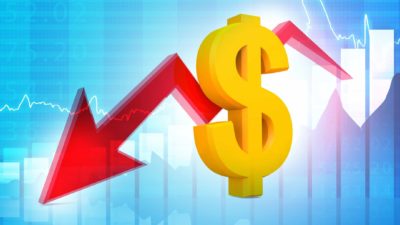It was a horrid day for the Tesla Inc (NASDAQ: TSLA) share price in the American trading session that took place overnight (our time).
Tesla stock started the trading session at US$242.68. But by market close, the electric battery and vehicle manufacturer dropped like a stone, ending the day at just US$220.11 a share. That was down a nasty 9.3%. But what does this mean for ASX lithium shares?
The catalyst for Tesla's massive drop was undoubtedly the company's latest earnings results, covering the third quarter of 2023.
As my Fool colleague Mitchell covered yesterday, these earnings left investors wanting.
Tesla did report top-line growth in all of its divisions. Automotive revenues were up 5% year-on-year to US$19.63 billion, while Tesla's energy/storage division grew 40% and services revenue by 32%.
However, the company's bottom line told a different story. Tesla's gross margins cratered from 25.1% to 17.9%, which underpinned a 22% fall in gross profits to US$4.18 billion.
Earnings per share (EPS) also fell dramatically, tanking 44% down to 53 US cents per share.
So how will this disappointing earnings report affect ASX lithium shares going forward? After all, Tesla is arguably the north star of all lithium companies around the world. It is the largest electric vehicle and battery manufacturer on the planet by a mile and could be described as epitomising the future-facing attributes of the entire lithium industry.
Indeed, today we've seen ASX lithium shares respond very poorly to Tesla's latest earnings. Take the Pilbara Minerals Ltd (ASX: PLS) share price, the ASX's largest lithium share. Pilbara shares are currently down around 1.8% to $3.79 each.
Core Lithium Ltd (ASX: CXO) stock has lost 2.9% and has fallen to 34 cents each, while Sayona Mining Ltd (ASX: SYA) has tanked 3.53% down to 8.2 cents a share.
Is Tesla to blame for these falls?
Do Tesla's share price woes mean bad news for ASX lithium shares?
Well, Tesla named a few underlying causes of its financial troubles that have infected the company's books of late:
- Reduced average selling price due to pricing and mix
- Higher operating expenses attributable to Cubertruck, AI, and other research and development projects
- Costs associated with ramping production and idle factories during upgrades
- Foreign currency exchange impact.
I would argue that none of these factors reveals any risks to the long-term viability of lithium as a key commodity in an all-electric future.
Sure Tesla is facing some issues. But most of these are due to the company ramping up production of new vehicles and Tesla's considerable research and development budget. In no way did Tesla imply that lower demand for electric vehicles or batteries was responsible for the drop in profitability.
If that were the case, I would be worried about ASX lithium shares. But Tesla said nothing yesterday to imply that the future of lithium is in danger. Yes, Tesla has had to cut the prices of the vehicles it has sold. But this seems to be a result of increased competition in the electric vehicle market rather than lower demand for electric vehicles themselves.
So I don't think ASX lithium share investors have anything to worry about from Tesla's latest earnings. But we'll have to see what happens going forward.
Even after last night's hefty share price drop, Tesla stock remains up a whopping 103.6% in 2023 to date.








